I am the slowest runner I know.
When I started running, the party was not in the back; unless it was a party of one, and that one was me.
Early in my running career, when I approached it as a tool for “fitness” and weight loss, my attempts to run with other people were grueling, painful, and traumatizing. Red-faced, sweating, and panting; I trailed behind my casual friends on a beautiful sunny day as they loped along the riverside path like spritely deer through the forest. As they gazed out across the sparkling river, laughing and talking, I stared pointedly at the ground, clutching my side and bending over as if my breath could be found on the dirt and pebbles at my feet.
Periodically suffering through races and the occasional soul-crushing group run, my mind turned against me:
Why am I doing this to myself? I’ll never get better at this. What’s the point? This is nothing but pain, suffering, and failure.
I took a long hiatus.
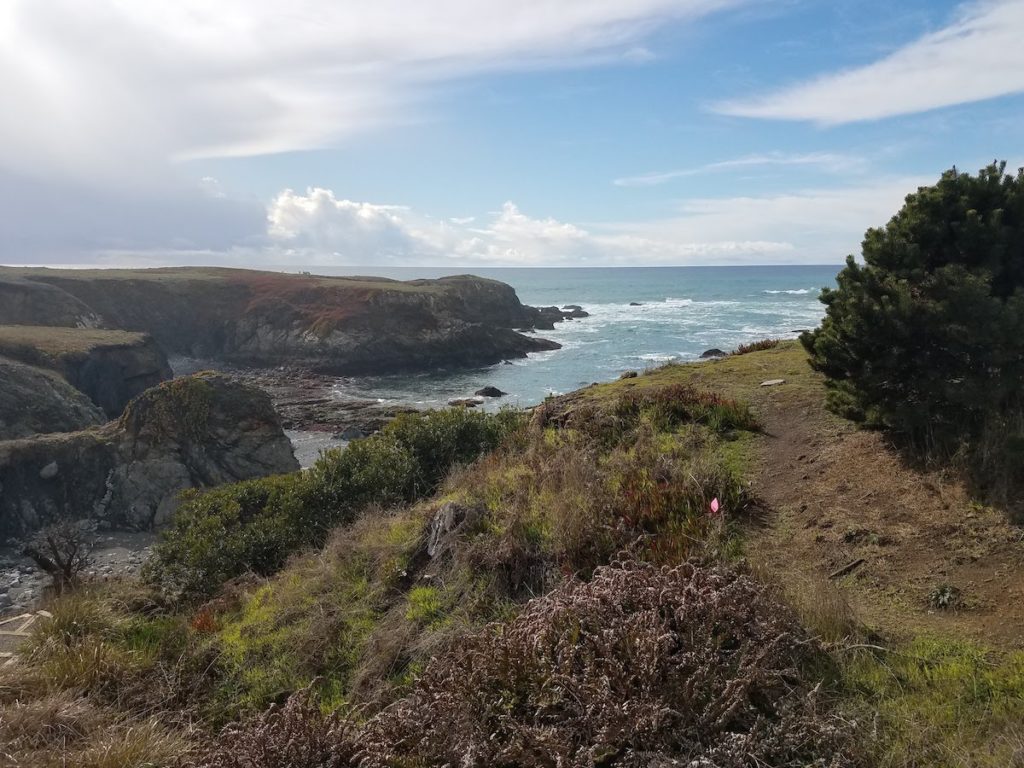
When I got back into running a few years later, it was no longer a punishment, no longer out of self-loathing; but rather as a way to get outside, be alone with my thoughts, and to reap the benefits of active time in nature.
I met my best running friend (BRF) in the copy room of the high school where we work. She was a new hire. I don’t know who said “I heard you’re a runner” first, but it probably wasn’t me, since I was still terrified of running with other people. But I like to challenge myself and grow, so when she asked if I wanted to go for a run, I said “Yes, but…” Thus, a long line of excuses was born.
“…I’m slow.” “…my allergies are really bothering me lately,” and so on. Almost every time we ran, which was at least monthly and often weekly, I’d throw out some kind of apology for existing to ensure I wouldn’t be shamed or humiliated. But what friend would shame or humiliate me? My friend would never do that, but I somehow didn’t trust her enough to give her the benefit of the doubt.
And so the apologies flowed, for years of our friendship.
Why Do We Do This?
What is it about our gender that makes us honorary Canadians, apologizing when someone runs into us (with all deference to our popular Northern neighbors–no one wants to be the American abroad, after all)? Is it the daughter-sister-mother-caretaker trope? Is it because we define our self-worth, or have been trained to do so, by how happy we make other people? At the root of apologizing for yourself and the way you are is the belief that it’s not OK; that you’re not OK. I’m sorry I’m not as good as you. I’m sorry I’m going to hold you back. But wait, I don’t dislike myself! But that’s the message I send to my brain when I apologize for being the way I am. And my brain can really carry a grudge.
Trust Your Friends
What message do we send our friends and community when we constantly apologize for, and thus subtly berate ourselves? What message do we send them when we don’t allow them to speak for themselves or give them the chance to accept us as we are? Why wouldn’t we want to have honest communication? Why? Our friends love us. Our friends can speak for themselves. If they want to run ahead badly enough, they will; if the purpose of our time together is a workout, trust them to get their workout in. If the purpose of being with us is to talk and hang out, they’re going to happily maintain our pace. Hey, you’re welcome for the active rest day, buddy!
To our community, the message is harsher. Hey, everyone slower than me: you really suck. Because if I’m not OK with myself, I’m not OK with everyone else in my group either.
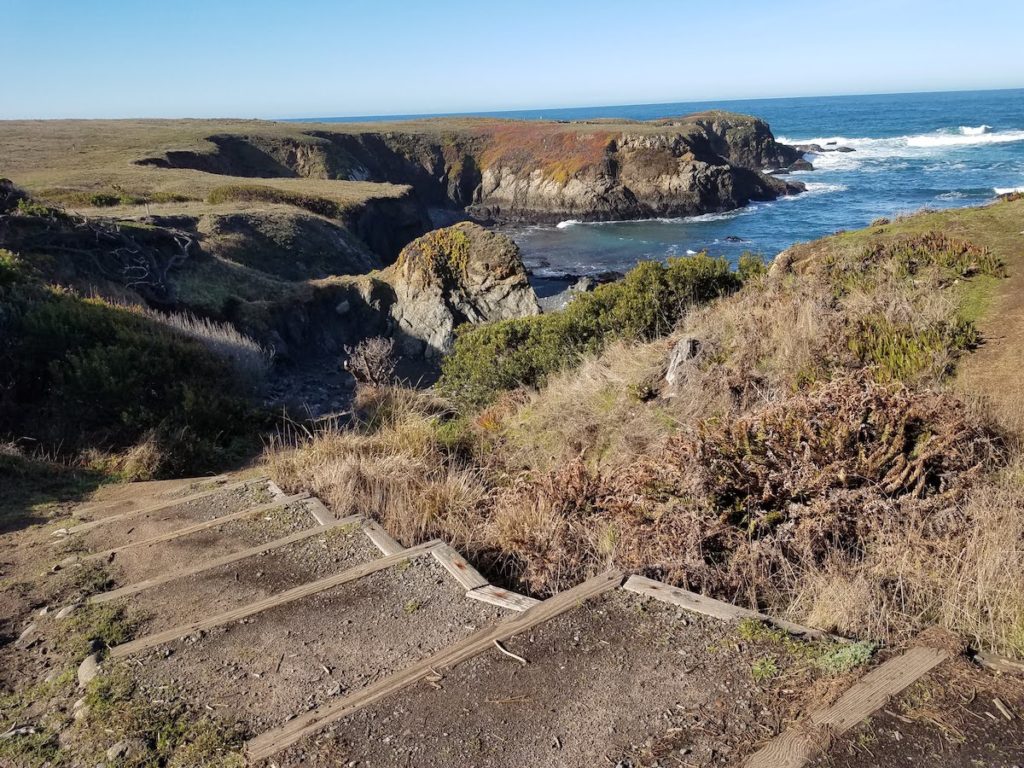
That’s not OK. Not for you, not for the community. And you know what? There’s a community of people slower than you (yes, you!) who are already practicing radical self-acceptance and proudly repping their pace groups.
Radical Self-Acceptance: You Are Normal As You Are
Radical self-acceptance starts with the question, “What if I never change?” What if I never get faster? What if I never lose weight? And it follows with the question, “How can I love myself as I am now?” This concept is based on two logical realities: You can’t develop a loving relationship on conditions (I’ll love you when and if…); and you are “normal” as you are, because you exist right now! Your existence is valid. You are valid. If you hike, you are a hiker. You are evidence of that. If you run, you are a runner. There is no external measuring stick saying “You must be this tall to ride.” You define yourself. So what if I’m slow? So what if I never beat an hour in the 10K? Does that negate the thousands of miles I’ve run? Am I here to be fast, or am I here to be?
We want to live our lives, to relish each day; not throw some away because we didn’t meet arbitrary number goals. Here are a couple ways to clean up those arbitrary number goals in your life.
Diversify your feed: Throw out the trash! Stop following all “fitspo,” and make sure you follow an equal number of “regular,” diverse, big, different bodies and abilities for every “straight-size,” professional runner/ hiker you follow. Reframe your ideas of what is normal and acceptable. Remember it’s you! You’re normal and acceptable! Change your self-talk. Every time you put yourself down, lift yourself up three times. (See “Find the ways you shine” below.) Be a warrior for self-acceptance by calling out your friends when they put themselves down too. Just a simple “I think your pace is awesome!” or “It’s so great that you’re getting out here!” can bring light to the darkness of comparison.
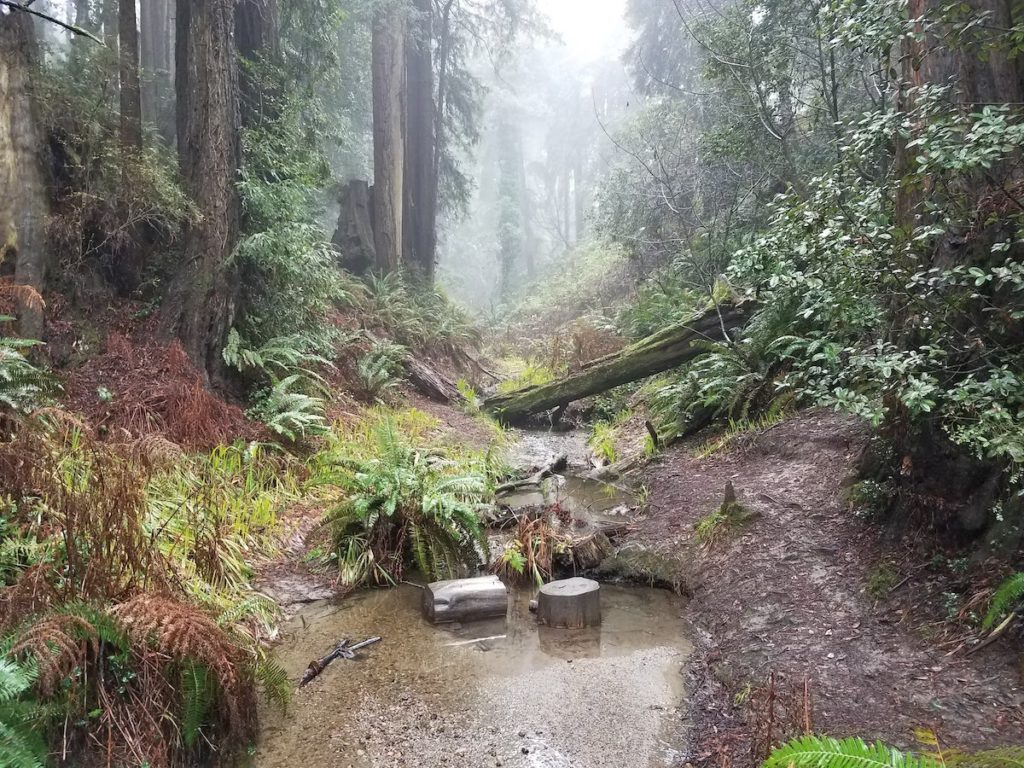
So what if you accept yourself at home, but then go to a race, gathering, or event; and feel the walls of “imposter syndrome” closing in around you? That may happen as you retrain your brain. Be patient. After all, you’ve been putting yourself down for a long time. Support your own growth with compassion, understanding, and strategies.
Find the ways you shine: Self acceptance comes from what you already love about yourself. Your brain is too smart to be tricked with platitudes and false affirmations. No “I am fast” mantra is going to actually make me faster without training. I am consistent. I am adventurous. Recently my walking friend gave me the mantle of “location chooser” because, to paraphrase, I’m the one who’s on the ball on walking day. That made me realize that I have valuable virtues that benefit my friends and have nothing to do with pace. Being the one who’s getting out there means I’m helping them get out there too. So what’s awesome about you? I’ll tell you the first thing: you are working on radical self-acceptance, and your happiness is going to bring joy to all your friends, too.
So stop apologizing for being “slow,” and everything else, because if you are a Trail Sister at any pace, size, ability, or background; you shine!



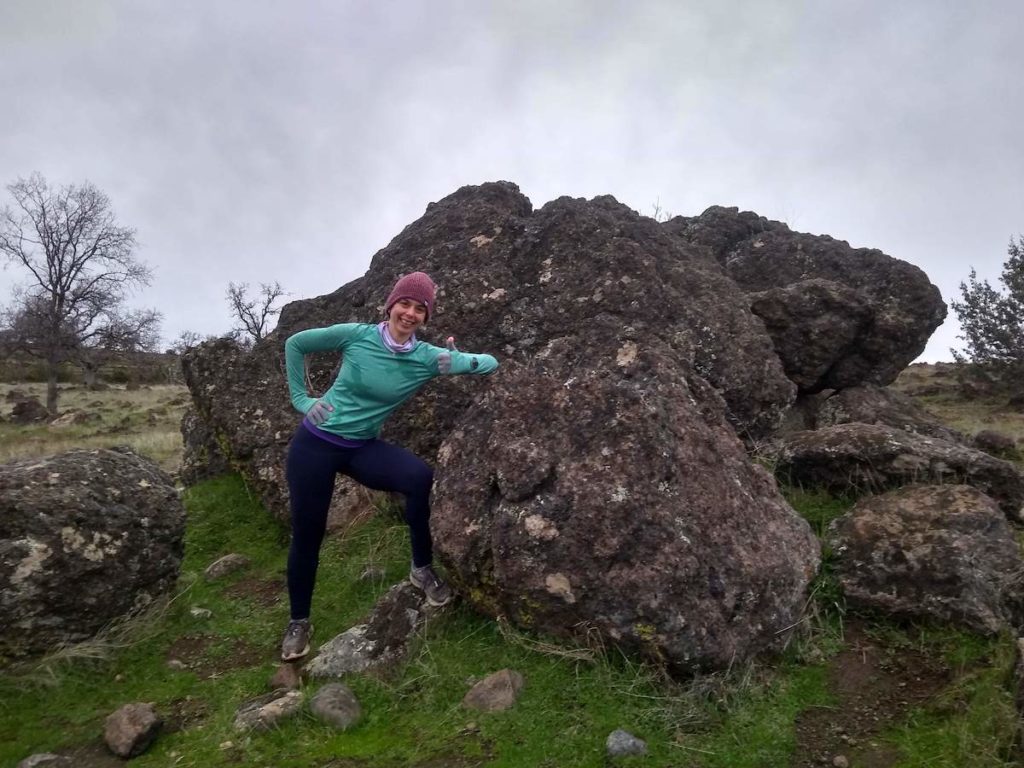
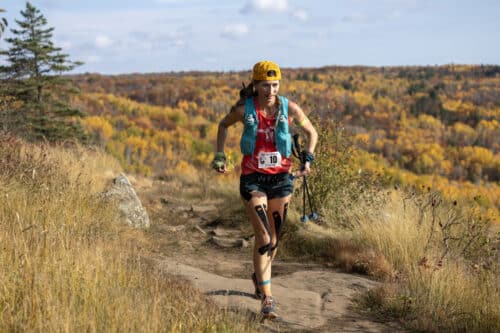
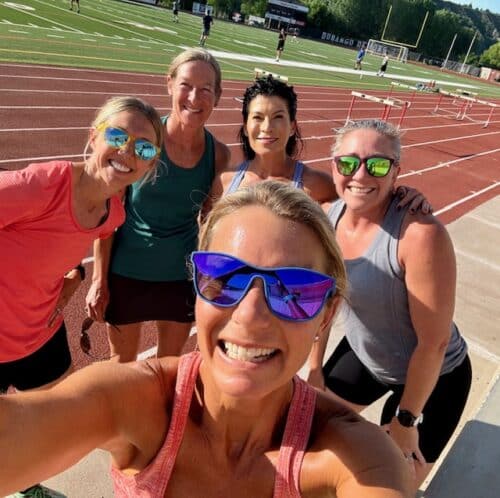


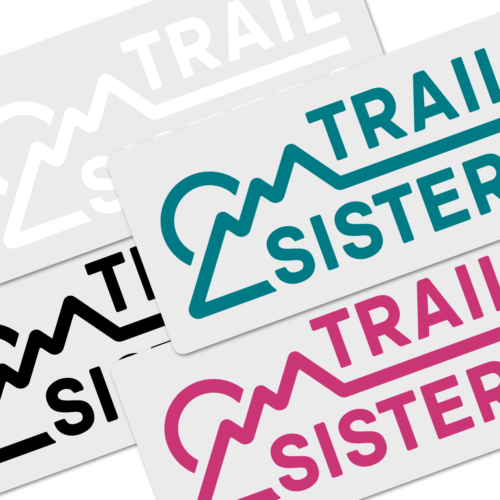
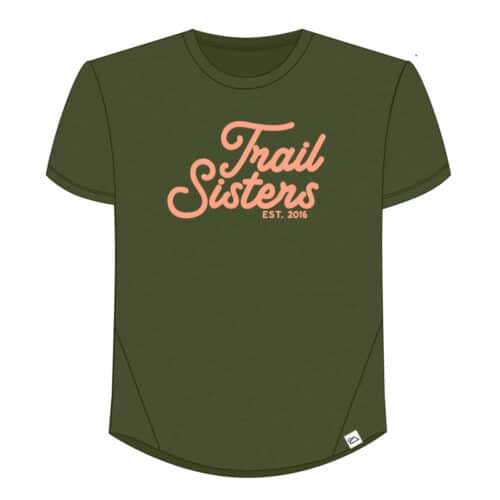
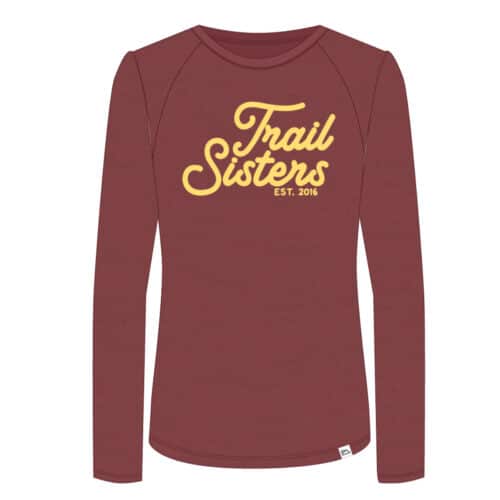
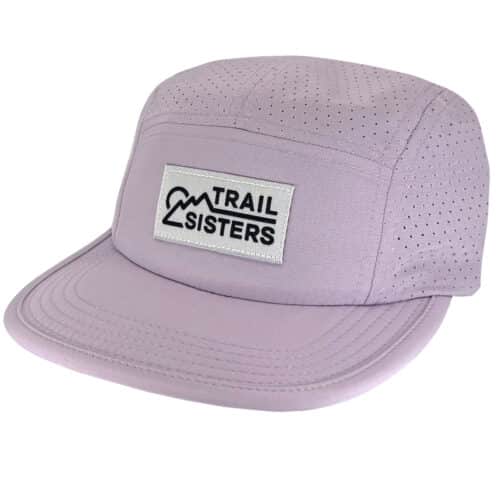
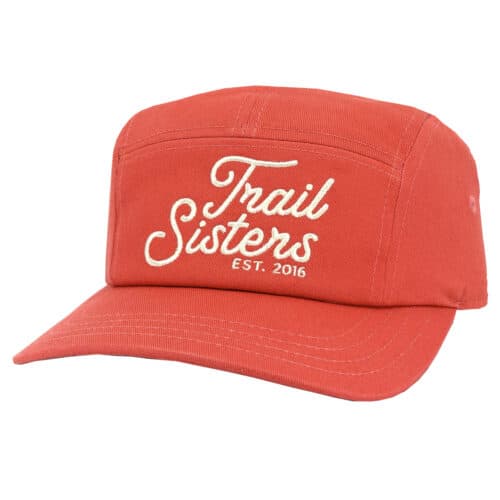
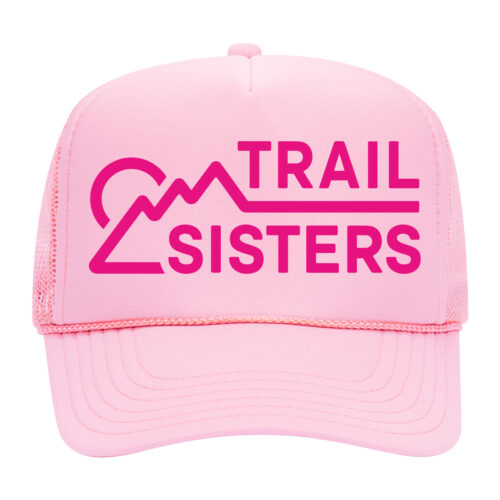


15 Responses
Carrie-
Thanks for sharing this article. I know we all have those thoughts of negativity, and training our brain to embrace who we are can be difficult. I’ve been on both sides of this conversation, so learning how to respond to others and myself is helpful advice. Enjoy the trails!
This was exactly what I needed to read as a runner just getting back into it, so thank you! I love the phrase Active Rest Day. And I want to enjoy every step at any pace. It’s weird that we put pressure on ourselves when we don’t do that to those we love. Great article and reminders!
I find myself choosing races with looped courses for multiple distances simultaneously so that I’m not alone at the ‘back of the pack.’ Mentally I’m in it to finish and with that mindset and some company along the way, I enjoy my time on the trails. Of course, doubt creeps in occasionally but the trail running community is so positive and affirming that I do experience a sense of belonging.
Carrie, this is exactly what I needed to read/hear right now. I’m starting my 62nd year around the sun and I’ll be referring back to this frequently!
This came in great timing! I was just talking with some of my runners about this very thing – I’m excited to share this with them and have a little discussion about it. How incredible if we can retrain young minds and set them up for a more positive future. Thanks for these words!
Thanks for all the feedback, sisters! It really warms my heart to think that this message is helpful and empowering for others! I completely agree that the trail community is so exceptionally supportive and empowering and a great source of self-acceptance examples too. I’m so glad for anyone this touches and is meaningful to. I hope we all keep getting out there in any capacity!
Thank you for the article and true insight. I run for therapy and enjoyment. I KNOW I will never place or be part of a group and I am okay with that. I start with a group but I have to be careful because as soon as they pull away my negative self-talk kicks in. If I start alone and people pass me, does not bother me. I am trying to get back to running with others, but lately the I’m too slow thing has kept me away from others. I need to carry thing article on me. Thank you.
I think I may be you, or vice versa! I am also an English teacher, and I want to transition to being a life coach and therapist!
This is me! I have never raced or joined a group run because I fear being dead last, and I internally roll my eyes whenever someone says they had a slow run and their pace is still faster than my fastest runs.
I’m learning to be content with the runner I am. I’m also consistent and adventurous, and that’s what I enjoy most about running — getting out there and exploring and challenging myself without worrying about pace.
It’s been 35 years since I had the biggest win of my running career. Thanks for the right juices to get out there & keep slugging it out!
I thoroughly enjoyed your brilliant article!
Not that I am a runner. I mostly meander, saunter, slither and sometimes I strut.
What you shared applies stunningly to other areas of our lives as well.
Out-of-state visitors are coming to our home tomorrow, lovely friends we have not seen in years.
So, can you guess how I am preparing for their arrival, their dinner with us?
I’m practically renovating the entire house and reading gourmet magazines late into the night…!
I don’t want to be found wanting (or slow!) because the house or the meal are short of impeccable.
You’ve reminded me of self-acceptance and also of the social programming that is trying to run my life.
I’ve been running from that for 72 years and suddenly can see that, yes, I am a runner too…!
Thank you, dear Carrie!
Love this article. I run a ladies trail running group in England with many abilities, everyone is welcome and whilst we all run together, inevitably sometimes, the girls compare, and when they do it can spoil their run and good feeling. That removes the joy and pride and sometimes creates a personal frustration. I’ve shared this with them, as in my eyes just getting up and out there is all that counts – and the enjoyment of doing so. I thoroughly enjoyed reading your article and know they will too. Thank you. Louise x
Our BRF running group made a pact with each other. Each time one of us disingenuously apologizes,–says sorry for something not to be sorry for, we have to sprint, usually about 100 yards! It helps us rethink how we talk!
Thank you, thank you, thank you for the great article.
Thankyou for this article I have ran since I was 16 now nearly 55 started with walk a mile run half a mile worked a treat, now if I haven’t ran in a couple of weeks I start back with run 5 songs walk one, works a treat. I used to be a slow runner until my husband once said “you call that running” That was when I realised most of the people I hear talking about the slow or over weight runners are people who dont do running and I think well I’m doing this I am a runner and I am proud to be a runner, that’s something they can never say or feel ❤